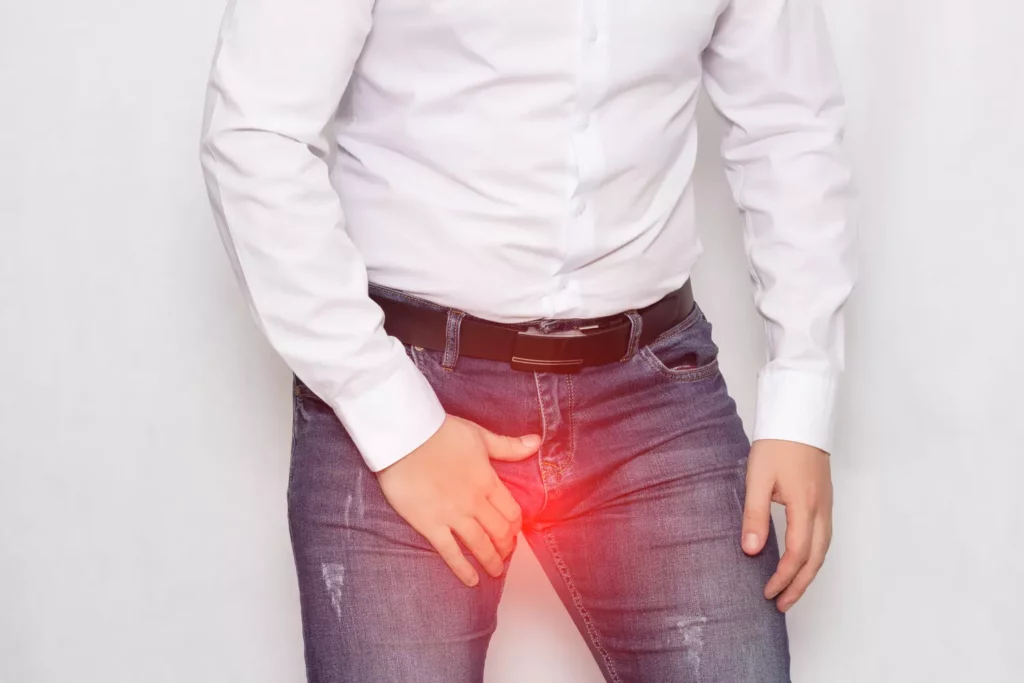Varicocele and Infertility: What Treatment Options Are Available?
What is a varicocele?
A varicocele is a condition where the veins of the testicles or sperm become abnormally dilated within the scrotum, the sac of skin surrounding the testicles. These veins drain blood from the testicles, but in a varicocele, the situation is similar to varicose veins in the legs. This causes swelling in the affected testicle. Generally, a varicocele presents as testicular swelling, but in some cases, pain may occur, and in severe cases, testicular atrophy and infertility can result. This infertility is due to azoospermia, the absence of sperm in the ejaculate. Fortunately, this is often reversible with treatment. Varicocele is common, especially in young adults (18-25). It usually affects the left side due to the left testicular vein's position, but can also occur on the right.
Is varicocele serious for the testicle?
Varicocele is a condition with dilated veins in the scrotum. While generally benign, it can impact testicle health. Dilated veins can cause blood accumulation, increasing temperature around the testicles. This heat can affect sperm production and quality. Varicocele may cause pain or scrotal swelling. Immediate treatment isn't always necessary; some men live with it without significant symptoms. However, consulting a healthcare professional is crucial to assess the varicocele and determine if treatment is needed.
What are the effects of varicocele on male fertility?
Varicocele, with its dilated scrotal veins, primarily affects the testicles. Its impact on male fertility includes difficulty conceiving due to changes in sperm quality. Studies show varicocele can reduce sperm count, impair motility, and cause abnormal morphology. These factors lower the chances of natural conception, often necessitating medical treatments like surgery to improve fertility.
EXPRESS QUOTE
Would you like more information?
Your health, our priority.
Request your free quote
What are the risk factors for varicocele?
Varicoceles often develop during sexual development. A varicocele in one testicle can affect sperm production in both. There aren't significant known risk factors, although some research suggests being overweight may reduce risk, while being tall may increase it.
How can varicocele cause male infertility?
Varicocele, with its enlarged scrotal veins, can affect male fertility. One impact is increased testicular temperature, impairing their natural cooling. This is crucial for normal sperm production; excess heat reduces sperm quality by affecting motility, morphology, and concentration. Additionally, varicocele can cause blood to pool, increasing pressure and potentially damaging the testicles. These changes make natural conception difficult and increase the risk of infertility. Men with varicocele and fertility concerns should consult a practitioner.

What are the symptoms of varicocele?
Varicocele is often asymptomatic. However, a patient might experience a soft swelling above the testicle, increased local temperature, pain, discomfort, or heaviness in the scrotal area. Symptoms often appear after prolonged inactivity, intense physical exertion, in the evening, warm environments, or after sexual activity.
What fertility tests are associated with varicocele?
With a varicocele diagnosis and fertility difficulties, specific tests are often recommended. Semen analysis measures semen volume, sperm concentration, motility, and morphology, helping determine the varicocele's impact on sperm quality and fertility. Hormone tests may assess testosterone and other fertility-related hormones. A full fertility assessment might be offered.
Can varicocele be treated?
Varicoceles often don't require treatment. However, if pain, testicular atrophy, or infertility occur (especially before IVF), treatment is recommended. Surgery involves closing the affected vein to restore healthy blood flow. Treatment can resolve male infertility or improve sperm quality for IVF. Consider treatment if fertility problems exist. Varicocele, appearing during adolescence, can affect sperm quantity and quality, yet many men retain sufficient fertility.
Varicocele surgery: a solution to improve male fertility?
Improving male fertility in men with varicocele often involves surgery. This intervention ligates or sclerose the dilated veins to improve blood flow to the testicles, mitigating varicocele's harmful effects on sperm production. Surgery can positively impact sperm concentration, motility, and morphology. However, it doesn't guarantee fertility restoration; each case needs individual assessment by a fertility expert.
Can untreated varicocele reduce fertility in men?
For optimal male fertility, surgery is recommended for adolescents with progressive testicular atrophy, pain, or abnormal semen analysis. While varicocele treatment improves sperm quality, the long-term impact of untreated varicocele on sperm quality is unclear. Without symptoms like testicular atrophy, altered sperm parameters in semen analysis, or hypogonadism, varicocele treatment isn't generally necessary.
Varicocele treatment: surgery or embolization?
If you experience varicocele symptoms, pain, or fertility problems, treatment is available.
Varicocele surgery
This procedure, under general or local anesthesia, involves a small incision. Recovery is rapid; normal activities resume within days, sports after two weeks, and sexual activity after doctor consultation. Sperm quality improvement takes a few months.
Varicocele embolization
Percutaneous embolization is an outpatient procedure under local anesthesia, repairing the varicocele via blood vessels. It's performed by an interventional radiologist.